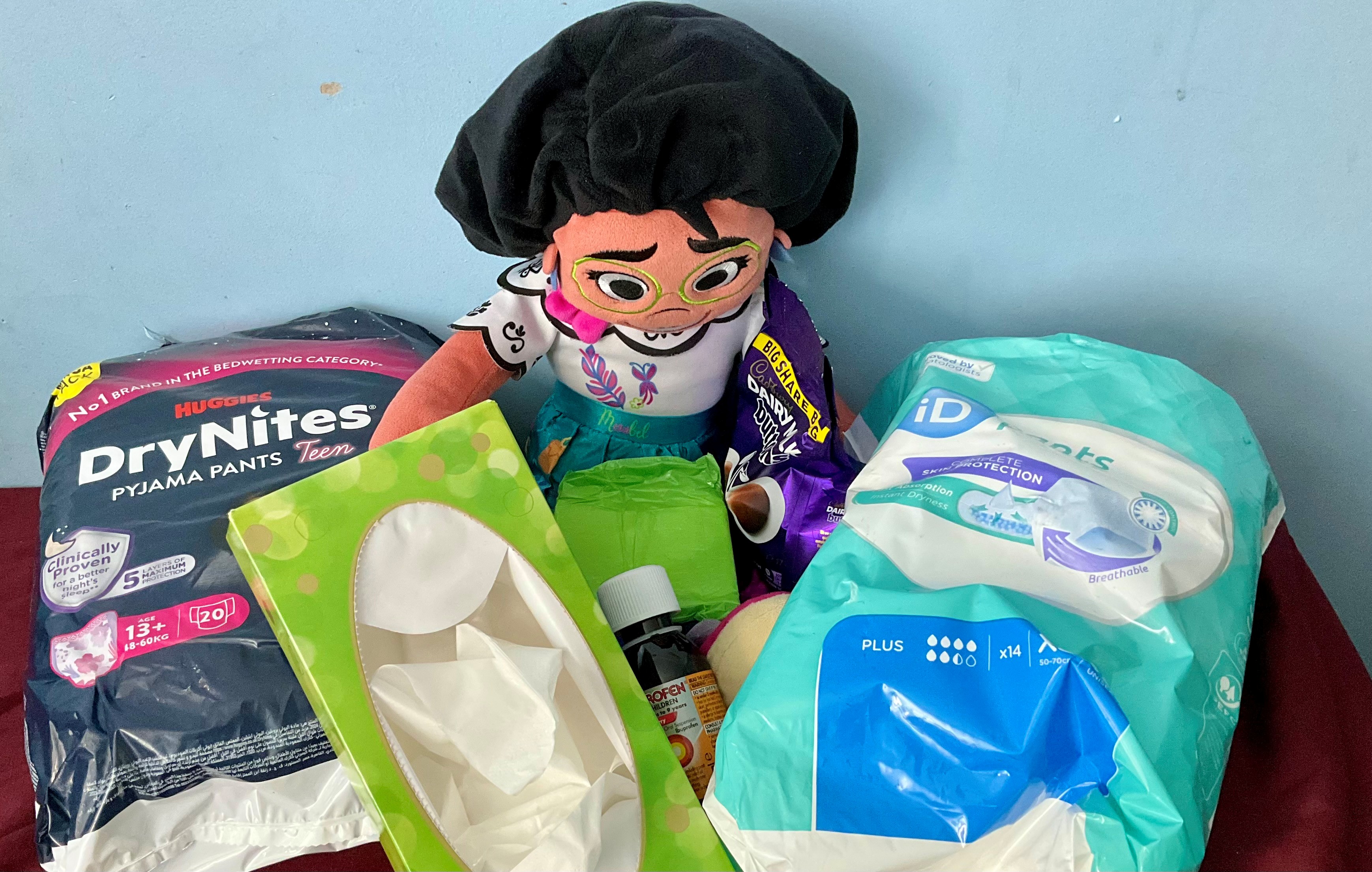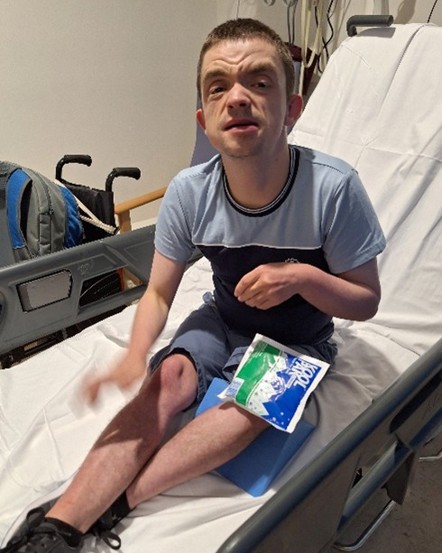Periods in an incontinent disabled teen

Guest Bloggers
Firefly guest bloggers are made up of parents, therapists and professionals who wish to remain anonymous.

It was the night before Halloween on a dark wet Friday. My 11 year old daughter had come home from school looking pale and I was bracing myself for another autumn bug taking hold.
I was on the phone talking to yet another person involved in her care when suddenly she started crying in such acute pain that I quickly ended the call and raced to her side. As she clutched her stomach with tears in her eyes I was contemplating calling an ambulance when she motioned for me to do her intimate care.
That was the moment it all made sense. My disabled, incontinent young daughter had taken her first period.
I was in just as much shock as she was!
As her pain slowly eased and she became more comfortable I started searching for information. Of course I knew all about menstruation as I’d had way too many years of dealing with my own cycles.
I understood what it was all about though. I could take care of my own body. I could independently keep myself fresh and clean. I wasn’t a confused disabled young lady who was still at primary school and who was entirely dependent on others to make sure she was comfortable.
Periods change things for every teenage girl but it’s much more complicated and difficult when that child is disabled and incontinent.
My first thought was did I need to add anything into her pull ups to enable them to absorb the blood? Then I started worrying about informing the school, a task that most parents of teens never have to do. How would my anxious autistic daughter even cope every month? Should I take her to the doctor to discuss options?
There’s a plethora of information available these days for teen girls on starting your period but I could find nothing at all on how to deal with this with a disabled, autistic teen who was medically incontinent.
So here’s a few tips from a mum who has now dealt with this for over four years.
Talk to your daughter in ways she understands. Use books, visuals, videos and social stories. Reassure her that she will be ok and answer any questions she has.
It’s ok to continue with the care products you already have but you will go through a lot more especially in the 4-5 days your daughter bleeds every month. There will be more laundry, more baths and showers and lots more wipes used so make sure you have everything you will need.
Prepare for the hormones: the mood swings, the tears, the growth spurts, and the changes in appetite. Sadly disability won’t exempt anyone from these even though it seems incredibly unfair for them.
Keep notes on your daughter’s cycles. Medical staff will need this and it can affect so many other things like blood results, skin conditions and even digestion.
There are medical options and for some disabled teens, periods are just too much. If your daughter really isn’t coping it’s worth having that discussion with your doctor to discuss what is appropriate.
Above all remember that you aren’t alone.
It might seem a taboo subject but disabled females have periods and go through puberty too. There’s nothing to be embarrassed about. Let your daughter cry, eat chocolate or get grumpy. Remember how you were going through puberty and never forget that things will get easier.
The thing with periods is that they give you far too many opportunities to get used to them!
Topics
No results found
We couldn't find any results that matched your selections. Please choose some different filters.


